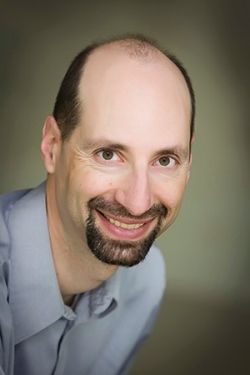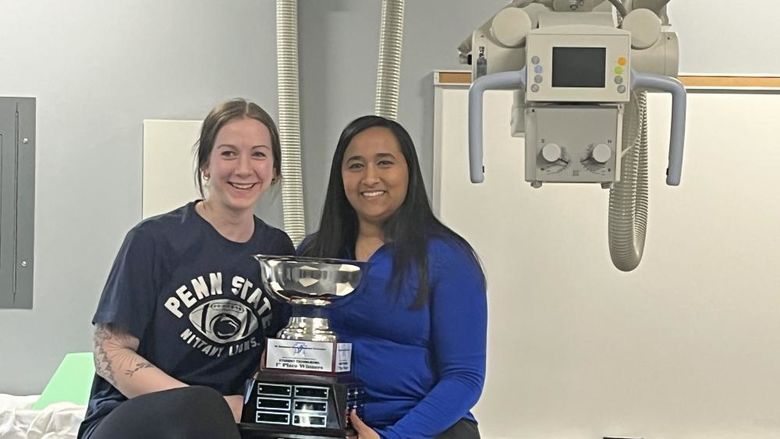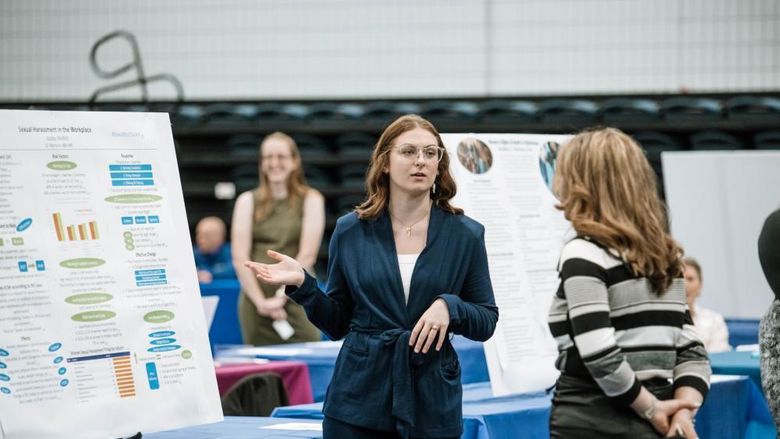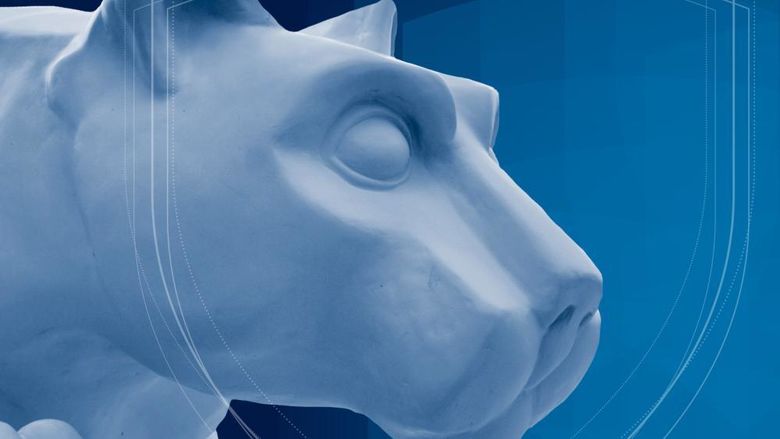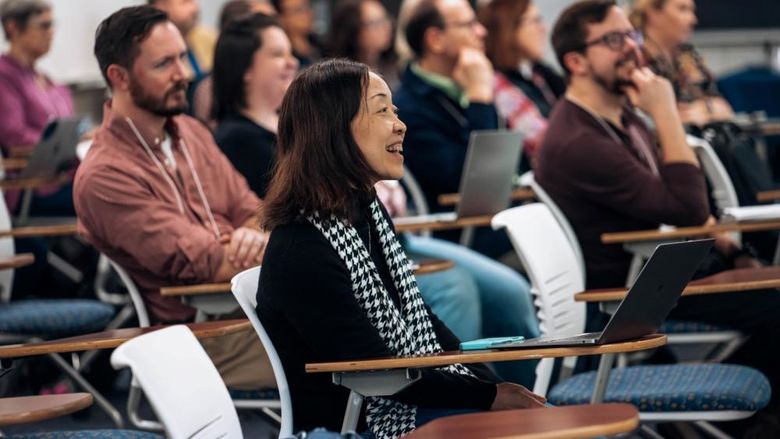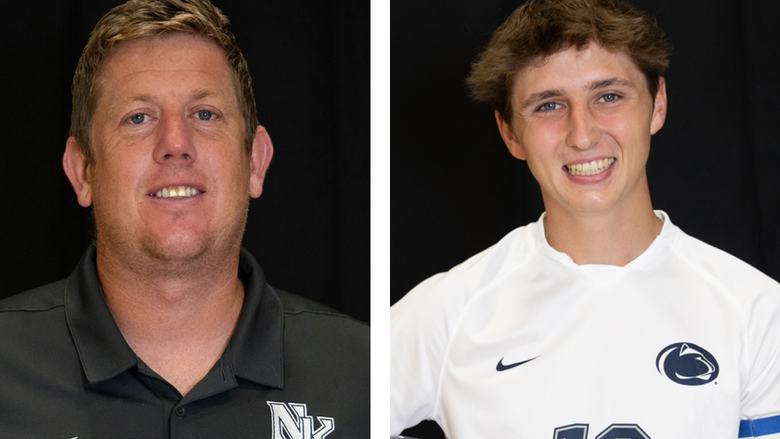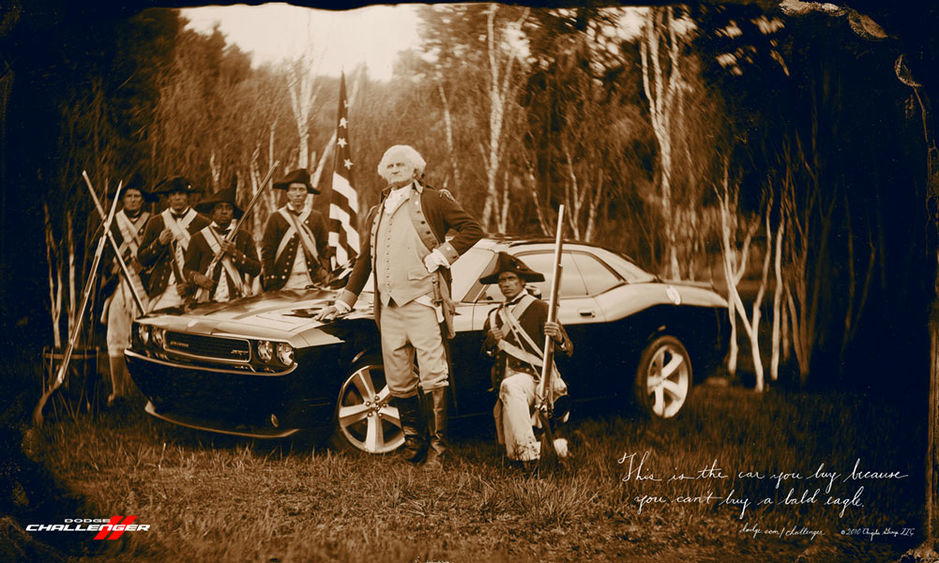
George Washington with a Dodge Challenger during the American Revolution. Andrew Schocket will give a talk April 5 at Penn State New Kensington about using the Founding Fathers as pitchmen.
UPPER BURRELL, Pa. — How everyone from advertisers to politicians use, represent and abuse the American Revolution is the topic of a presentation at 7 p.m. Tuesday, April 5, at Penn State New Kensington. Author and scholar Andrew M. Schocket will talk about “Muscle Cars, Lattés, and Rooftop Grilling: How We Sell the Founders, and Why It Matters.” The event is free to the public.
In addition to the evening lecture, Schocket will meet during the day with students in an honors seminar class. The author is a professor of history and American culture studies at Bowling Green State University. He was invited to campus by Craig Hammond, associate professor of history, who teaches the class.
“Schocket provides a fresh, revealing look at how we understand, embrace and use the founders in everyday public life,” Hammond said. "With a presidential primary and election just around the corner, Schocket forces us to think about why the founding remains so prominent in American life after two centuries, and how to think intelligently about the barrage of homages to the founders that will be forthcoming as political campaigns seek the support of voters.”
Schocket’s presentation focuses on advertisers shaping the writings and achievements of the Founding Fathers to conform to their own preconceived notions. By portraying the American Revolution and its participants in different ways, advertisers provide fodder for the national conversation on American values.
Schocket cites George Washington as an example. A dignified president with a stern countenance is transformed into a carnival barker with a smirk who peddles cars and trucks. The phenomena is especially prevalent in February, where Washington is often aided and abetted by Abraham Lincoln.
“For a long time, we have slapped the names and images of the founders on products and services from life insurance to beer to plumbing,” said Schocket, director of the American Culture Studies Program at Bowling Green. “For even longer — since our nation’s inception — we have contested the meanings of the American Revolution as a way to debate our nation’s principles and values, and just as importantly, who is truly ‘American.’ What is fairly new is how these recent advertisements, like so many facets of our lives, have also become politicized.”
The talk complements Schocket’s latest book, “Fighting over the Founders: How We Remember the American Revolution” (New York University Press, 2015). In addition to advertisers, Schocket takes on an array of industries and individuals, including politicians, who create their own “spin” on the legacy of the Founding Fathers.
“In any society, ownership of an authoritative past provides a powerful political rhetorical weapon,” Schocket writes in the book.
Schocket examines the question of the duality of the American Revolution — was it limited to the goal of independence from Great Britain or were there broader issues of class, race and gender equality. Those seeking power and profit try to exploit the revolution by perpetrating myths and ignoring facts. How politicians and advertisers present these 200-year-old memes to the American people controls the narrative and forms the foundation for the collective memory of the nation.
“In all nations, the ability to claim an authoritative version of crucial memories makes for powerful ammunition for fundamental debates,” Schocket wrote. “Defining memory defines the nation, and defining the nation means the privileging of some values and policies over others.”
In preparation for Schocket’s visit, Hammond’s honors class, “Debating the Purpose of Government,” is reading and discussing the book as a part of an assignment.
On Monday, April 4, the day before his campus visit, Schocket will be a guest on Pittsburgh’s NPR news station, 90.5 WESA. He will be interviewed live at noon by Paul Guggenheimer, host of "Essential Pittsburgh." Airing from noon to 1 p.m. daily, "Essential Pittsburgh" is a locally produced program dedicated to exploring critical issues affecting Pittsburgh and western Pennsylvania. The show features community leaders and newsmakers in the arts, sciences, technology, business, healthcare, government and education. The interview will be repeated at 8 p.m. on WESA.
Seating is limited in the Conference Center on campus. Reservations are encouraged but not necessary. Guests will be admitted on a first-come, first-served basis. For more information, call 724-334-6032.
Andrew M. Schocket
Schocket earned a bachelor’s degree in history from Yale University and a doctorate in history from the College of William and Mary. At Bowling Green, he studies and teaches early American history and culture, the American Revolution, the Atlantic world, memory and digital humanities. His teaching focuses on interactive methods that engage students, on fostering a classroom atmosphere in which all students feel encouraged to participate, and on demanding excellence.
In addition to “Fighting over the Founders," Schocket has written “Founding Corporate Power in Early National Philadelphia” (EH.NET, 2007). He is published in a variety of academic journals and is a contributing writer for numerous media outlets, including The Washington Post, San Francisco Chronicle, Salon, New York Daily News and History News Network. He blogs regularly at www.andyschocket.net.
Bill Woodard
Alumni and Public Relations Specialist
